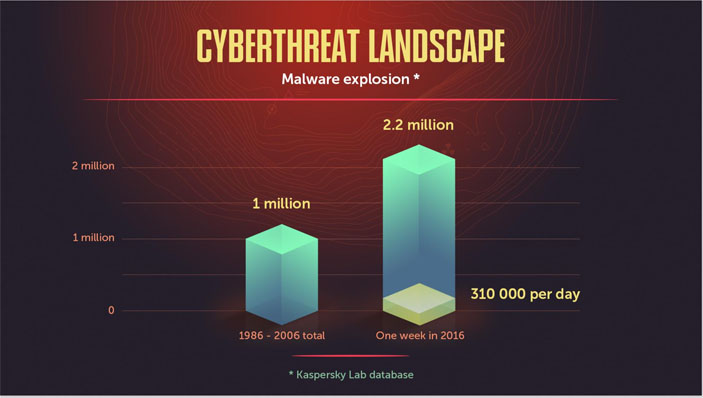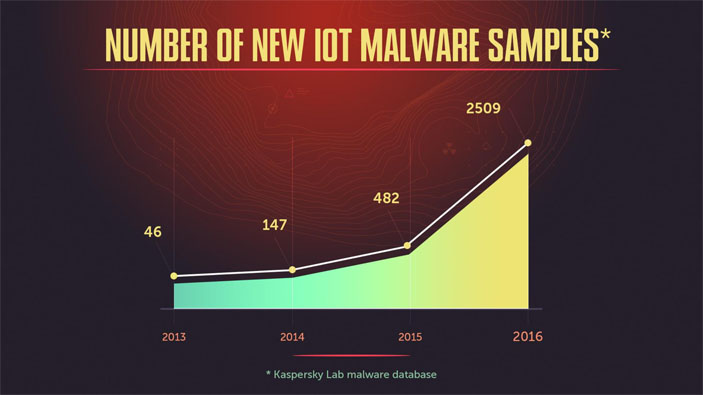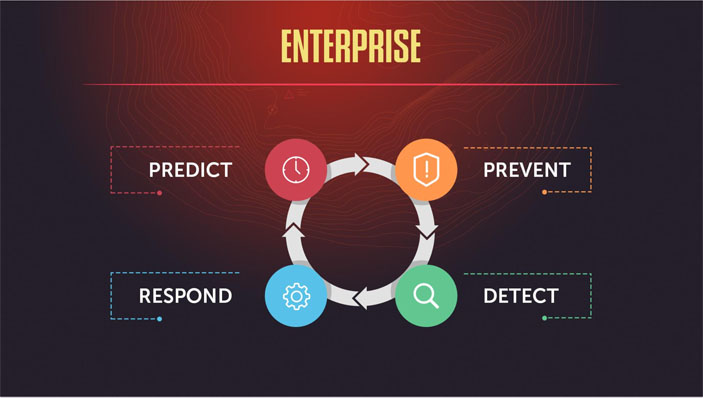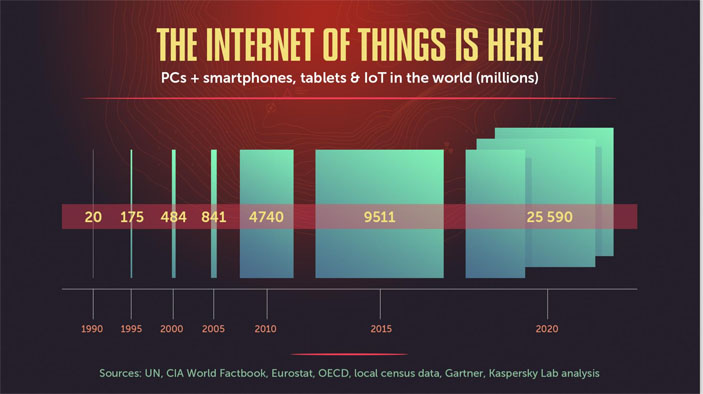THE BUDGET for the global space programme is around US$33 billion.
The annual cost of cybercrime to the world is US$450 billion, a staggering 13 times the value of the space programme, Eugene Kaspersky, CEO of the company that bears his name, pointed out at his recent presentation at the recent Palaeontology of Cybersecurity Conference.
For 20 years Kaspersky Labs has worked to thwart security threats, and has over 400 million users of its products. In that time, it has seen his business deal with a skyrocketing array of cyberthreats.

Waving his trusty old Sony Ericsson mobile phone, he makes the point that the more connected people want to be, the greater the likelihood of malware and other negative influences finding their way into the system.
“We are living in an aggressive, toxic environment,” Kaspersky warns.
Sophisticated Attacks
The greater sophistication of malware — which evolved from corrupting systems to blocking them and demanding money for their release, via ransomware like Wannacry — has meant more resources are being called into action to resolve the situation.
From 1986 to 2000 the total number of malware incidents was around the 1 million mark. Now, the world sees more than double that amount in just a week.

The growth of malware has been accelerating at an alarming rate. In three years, the samples of malware jumped 55 times to 2,509 samples last year. Besides keeping Kaspersky busy, it also means cyber criminals are constantly looking for new ways to threaten cyber communities.
“Russia has the best software engineers, but it also has the 10 to 15 gangs of highly professional cyber criminals,” Kaspersky points out.
You Might Also Like To Read:
8 Tips To Save You From Cyber Crying
Ransomware — The Line Between Crime And Terror
Kaspersky warns of sabotage to infrastructure, as something that could cripple society if not contained. The malware, Petya, Kaspersky feels has taken the threat to the level of terrorism, where physical damage could be inflicted.
“Previously, cyber attacks wiped data, but did not inflict any physical damage. But, if it attacks the power grid, that’s the end of civilisation,” Kaspersky warns.
He urges enterprises to adopt a cycle of behaviour that will detect problems, respond to them, then predict them and take preventative measures.

And with the next big thing being the internet of things (IOT), expect even more challenges to test the system. From 20 million mobile devices in 1990, the number of devices is expected to breach 25.5 billion by 2020.

“Bad guys will pay more attention to IOT,” Kaspersky warns. “From fire alarm systems to smart doors in hotels, data will be going everywhere. There will be more smart devices than people.
“The good news is, finally we will have a smart world.”
[poll id=”51″]



















